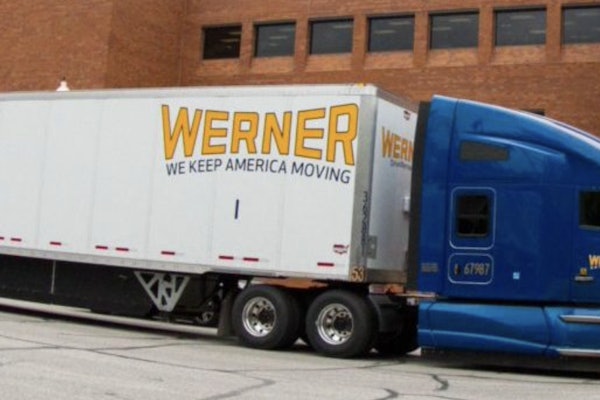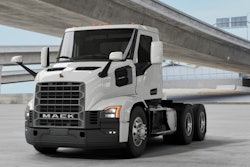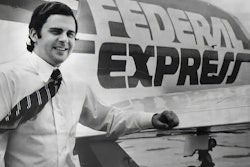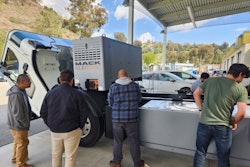Rob Rowe completed 12 years in the U.S. Marines and U.S. Army and trucked for 15 years before serving as a trucker contactor in Iraq. Brian Rolfe had been a trucker 16 years when he signed on a trucker contractor in Iraq as a way to serve his country.
Rowe was shot in the knee during a convoy attack and has retained a lawyer to pay for medical treatment and lost wages. Rolfe was shot in the head, but says he was compensated for his medical treatment and lost wages.
Both advise against serving as a trucker contractor in Iraq, saying they had to drive unarmored trucks in a war zone. Both contracted with the engineering and construction firm Kellogg, Brown & Root, which did not respond to requests for comment.
In February, Rowe and Rolfe attended a meeting of former Iraq contractors, where they heard a speaker on post-traumatic stress – an illness both say they have. The meeting was organized by Jana Crowder, a Knoxville, Tenn. homemaker who said she began the website www.americancontractorsiniraq.com because contractors returning from Iraq and Afghanistan are not getting the help they need.
“Truckers have the most difficulty getting help,” she said. “Truckers are our biggest group because they’re running convoy, and they see a lot more.” Medical insurers often drop a trucker who gets injured, Crowder said.
Even so, Rowe and Rolfe fared better than dozens of their peers. According to the website Iraq Coalition Casualty Count, 38 American truckers and 28 truckers of other nationalities were killed while contracting in Iraq between April 2003 and Feb. 5, 2007. Convoy attacks caused the most deaths; vehicle accidents accounted for only two.
According to the U.S. Department of Labor, more than 800 U.S. contractor employees have been killed on the job in Iraq and several thousand more have been wounded.
Although Rowe and Rolfe wore Kevlar helmets and body armor vests, they drove unarmored European Mercedes-Benz cabover trucks. “We had to fabricate our own armor,” Rowe said. “I put sandbags in the floor of my truck, boards in the windows, whatever I could find.”
The men said they worked 12 hours a day, seven days a week, though Rolfe said working hours improved in 2004. Rowe said militants in Iraq sometimes force children into the road in the paths of trucks; if truckers stop, they’re ambushed.
In 2004, his convoy was attacked by insurgents at night, and he was shot in the knee. He was treated at a combat surgical hospital and sent home, where he began living out of his savings.
The 46-year-old Marion, Ohio, resident said he was told to contact KBR and its insurance company, but was unable to get a response. After Rowe made many attempts over a period of three months, an insurance agent finally interviewed him. Two months after that, Rowe said, the insurer told him it would not pay for any medical care he received in the United States.
Rowe said the metal pieces in his leg continue to cause pain and won’t allow him to shift gears, but he has been able to work as a Celadon company driver the past 18 months because the Indiana-based truckload carrier’s truck has automatic transmission. “There needs to be a watchdog group that watches these corporations sending civilians into a war zone,” Rowe said.
Rolfe was shot in the head in Baghdad in 2004, treated at a combat surgical hospital and sent home. He said KBR’s insurance company paid for his medical care, and he was compensated for lost wages. The Milton, W.Va., resident is on medical leave and cannot pass a DOT physical, but the U.S. Department of Labor is working with him on a vocational plan.
KBR’s parent company, Halliburton, recently announced an offer to exchange up to 135.6 million shares of KBR stock, more than 80 percent of KBR’s shares, for its own shares. Analysts said the move is part of Halliburton’s plan to split off KBR as a separate company. Not only has KBR been a lightning rod of controversy since the start of the Iraq war, accused of profiteering and mismanagement, but it’s less profitable than Halliburton’s core oilfield-services business.
U.S. Vice President Dick Cheney was Halliburton’s chairman and chief executive officer from 1995 until 2000, when he resigned to be George W. Bush’s running mate.









